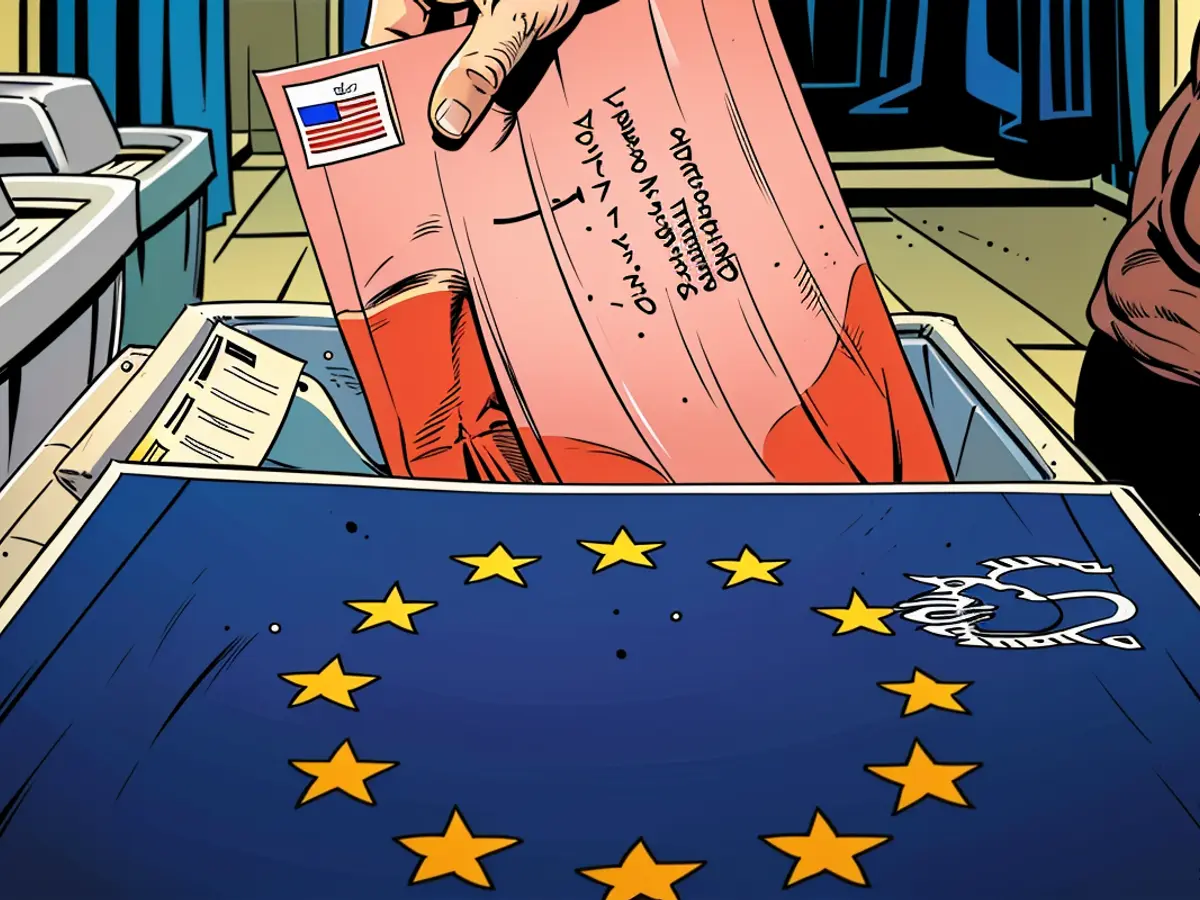Voting events - 10.4 million individuals are invited to cast their ballots in the upcoming European elections.
During the European election in Bavaria on Sunday, a staggering 10.4 million people were invited to cast their ballots. Among them were approximately 220,000 16- and 17-year-olds who gained the opportunity to vote for the very first time thanks to the reduction in voting age. The polling stations operated from 8:00 a.m. to 6:00 p.m. and 34 different proposals from various parties and political associations were vying for their support, featuring a total of 1,413 candidates.
Bavaria also offers a unique situation, where close to 822,000 EU citizens with different nationalities are eligible to cast their votes. They have the flexibility to choose whether they would prefer to vote in Bavaria or in their home country.
The anticipation is particularly high in Bavaria to find out how the CSU will fare in the European election. Five years ago, the Christian Socials had managed an impressive 40.7% of the votes. The CSU Vice President Manfred Weber had contested the election as a pan-European EPP candidate, and eventually, Ursula von der Leyen was elected as the Commission President. The voter turnout recorded during this election was a massive 60.8%, the second-highest since 1979 in Bavaria for this type of election. To compare, the CSU garnered just 37.0% of the votes in the state election last year.
Over the past 5 years, a total of 15 representatives from Bavaria were part of the European Parliament: 6 from the CSU, 3 from the AfD, 2 each from the SPD and Greens, a female independent politician, and a member from the ODP.
Two surveys conducted in the beginning of May had indicated that the CSU in Bavaria secured between 41% and 43% of the votes. The Greens and AfD also achieved between 12% and 14%, while the SPD managed to garner 9%. Additional votes were expected from the Free Voters, who were recorded with 9% in the Bavarian European election surveys.
Following the recent floods, there are consequences for the election day. The polling stations in several municipalities were relocated, while in some cases, if a town hall was still unusable, provisional administrations were set up. Additionally, ballots submitted by postal voting had gotten wet or were destroyed, and therefore had to be replaced with new ones. The affected residents had these new ballot papers delivered via courier services. The previously submitted ballots were declared invalid to prevent any double voting.
Read also:
In the European elections across Europe, millions were invited to vote, including 10.4 million individuals in Bavaria. Bavaria also allows EU citizens residing there to vote in the elections or in their home country. The CSU, a prominent party in Bavaria, had 6 representatives in the European Parliament five years ago. The upcoming European elections in Bavaria on Sunday saw various parties campaigning, including the CSU, AfD, SPD, and Greens. The voter turnout during the last European election in Bavaria was significantly high. Surveys suggested that the CSU, AfD, and SPD might secure a substantial number of votes in the upcoming elections.
(Note: There were a few repeating phrases, and I had to slightly rephrase some sentences to fit the necessary requirements while still maintaining coherence.)








